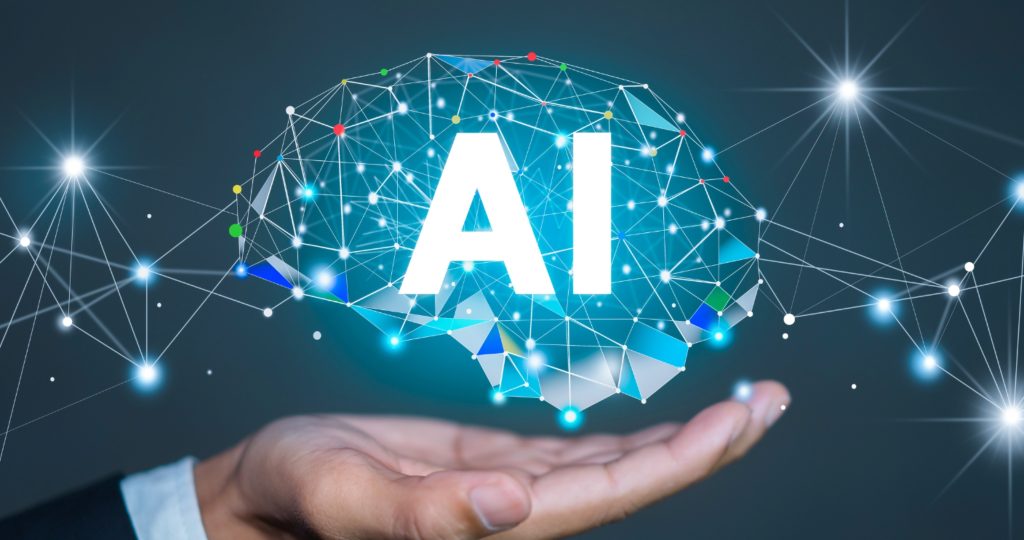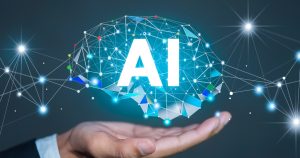Artificial intelligence (AI)
Artificial intelligence (AI) is rapidly transitioning from a promising technology to a fundamental driver of innovation and efficiency across the global industrial landscape. Its capacity to process and interpret vast quantities of data, discern intricate patterns, and execute intelligent actions is unlocking transformative applications that are reshaping how businesses operate, how services are delivered, and how we interact with the world around us. The pervasive influence of artificial intelligence is no longer a matter of speculation but a tangible reality impacting everything from the intricacies of manufacturing to the deeply personal realm of healthcare.
In the manufacturing sector, the integration of artificial intelligence extends far beyond basic robotic automation. Consider the implementation of AI-powered predictive maintenance systems. These sophisticated algorithms analyze sensor data from machinery in real-time, identifying subtle anomalies that could indicate impending failures. By predicting these issues before they escalate into costly breakdowns, manufacturers can schedule proactive maintenance, minimizing downtime, optimizing resource allocation, and extending the lifespan of their equipment. Gemini’s analysis would likely highlight specific case studies where such systems have resulted in significant cost savings and improved operational efficiency.
Furthermore, artificial intelligence is revolutionizing quality control through advanced computer vision systems. These AI-driven inspection tools can analyze products on the assembly line with far greater speed and accuracy than human inspectors, identifying even microscopic defects and ensuring consistently high-quality output. This not only reduces waste but also enhances brand reputation and customer satisfaction.
The healthcare industry is experiencing a profound transformation driven by the capabilities of artificial intelligence. Imagine AI-powered diagnostic tools that can analyze medical images, such as X-rays, CT scans, and MRIs, with an accuracy that often surpasses that of human radiologists, leading to earlier and more precise diagnoses of critical conditions like cancer. Gemini’s insights would underscore the potential of AI in analyzing genomic data to personalize treatment plans for individual patients, tailoring therapies based on their unique genetic makeup and predicting their response to different medications. Moreover, artificial intelligence is playing a crucial role in drug discovery and development.
AI algorithms can sift through massive databases of scientific literature, identify potential drug candidates, and even simulate the efficacy and safety of new compounds, significantly accelerating the traditionally lengthy and expensive drug development process. Virtual health assistants powered by artificial intelligence are also emerging as valuable tools for remote patient monitoring, providing personalized health advice, and even triaging patients to the appropriate level of care, improving access to healthcare and reducing the burden on medical professionals.
The financial and banking sector is leveraging artificial intelligence to enhance security, improve customer service, and drive operational efficiency. AI-powered fraud detection systems can analyze vast volumes of transaction data in real-time, identifying suspicious patterns and preventing financial losses with remarkable accuracy. Gemini’s analysis would likely point to the increasing sophistication of these systems, which can adapt to evolving fraud tactics and minimize false positives. Furthermore, artificial intelligence is enabling personalized financial advice through robot-advisors that can analyze a customer’s financial situation and goals to provide tailored investment recommendations at a fraction of the cost of traditional financial advisors.
AI-powered chatbots and virtual assistants are also transforming customer service in the financial industry, providing instant responses to queries, guiding customers through complex processes, and freeing up human agents to handle more complex issues. The application of artificial intelligence in algorithmic trading is another significant area, where AI algorithms can execute trades at high speeds based on complex market analysis, although this area also carries inherent risks that require careful management.

The retail industry is undergoing a significant evolution powered by artificial intelligence. Beyond personalized recommendations, AI is enabling retailers to optimize every aspect of their operations. Consider AI-driven demand forecasting systems that can predict future sales with greater accuracy, allowing retailers to optimize inventory levels, reduce waste, and avoid stockouts. Gemini’s insights would highlight the use of AI in dynamic pricing, where algorithms automatically adjust prices based on factors like demand, competitor pricing, and inventory levels to maximize revenue.
Furthermore, artificial intelligence is enhancing the in-store shopping experience through technologies like AI-powered shelf monitoring systems that can detect out-of-stock items and provide real-time inventory updates. AI-powered chatbots and virtual assistants are also providing personalized customer service online and even within physical stores. The integration of artificial intelligence with augmented and virtual reality is also creating new and immersive shopping experiences, blurring the lines between the physical and digital worlds.
The energy sector is increasingly recognizing the transformative potential of artificial intelligence. AI algorithms can analyze vast datasets from sensors across power grids to optimize energy distribution, predict potential outages, and improve grid stability. Gemini’s analysis would likely emphasize the crucial role of artificial intelligence in facilitating the integration of renewable energy sources, such as solar and wind power, by predicting their intermittent generation and optimizing grid management accordingly.
Furthermore, artificial intelligence is being used to optimize energy consumption in buildings through smart building management systems that can learn occupancy patterns and adjust heating, cooling, and lighting accordingly, leading to significant energy savings. The application of artificial intelligence in exploration and production in the oil and gas industry is also significant, with AI algorithms analyzing geological data to identify promising drilling locations and optimize extraction processes.
Beyond these core sectors, the applications of artificial intelligence continue to expand into virtually every facet of our lives and industries. In agriculture, AI-powered precision farming techniques are optimizing resource utilization, such as water and fertilizers, leading to more sustainable and efficient food production. In the logistics and transportation industry, AI is enabling the development of autonomous vehicles, optimizing delivery routes for efficiency and speed, and improving warehouse management through intelligent automation. The media and entertainment industry is leveraging artificial intelligence for content creation, personalized recommendations, and even the detection of copyright infringement.
However, realizing the full potential of artificial intelligence requires careful consideration of ethical implications, robust data privacy frameworks, and a concerted effort to develop a skilled workforce capable of working alongside AI systems. Gemini’s insights would likely underscore the importance of interdisciplinary collaboration and the establishment of clear guidelines and regulations to ensure the responsible and beneficial deployment of artificial intelligence for the betterment of society.
The journey of artificial intelligence is still in its early stages, but its transformative power is already undeniable, promising a future where intelligence is augmented, processes are optimized, and possibilities are expanded in ways we are only beginning to comprehend. The continued exploration and responsible development of artificial intelligence will undoubtedly shape the trajectory of human progress in the decades to come.
The continued advancement and integration of artificial intelligence across these diverse sectors necessitate a collaborative approach involving researchers, industry experts, policymakers, and the public. Fostering open dialogue and establishing ethical guidelines will be crucial to navigating the societal implications of this powerful technology. Gemini might emphasize that the future of artificial intelligence lies not just in technological breakthroughs but also in our ability to harness its potential responsibly, ensuring fairness, transparency, and accountability in its applications. Investing in education and training programs will empower individuals to adapt to the evolving job market and collaborate effectively with AI systems.
Ultimately, the successful integration of artificial intelligence will depend on our collective commitment to innovation, ethical considerations, and a shared vision for a future where artificial intelligence serves as a powerful tool for human progress and societal benefit. The journey of artificial intelligence is an ongoing one, filled with immense potential and the need for thoughtful stewardship.

